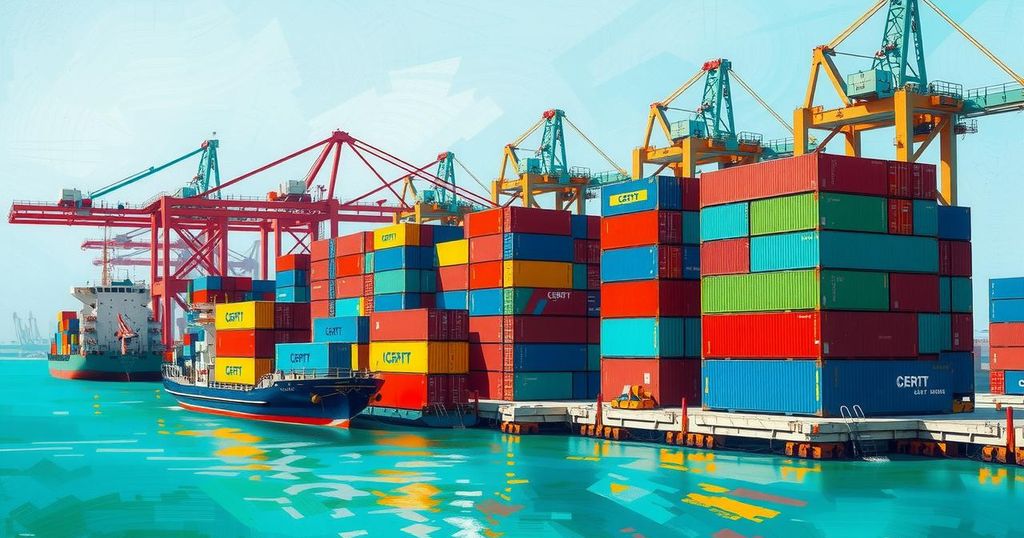The recently discussed tax reform bills in Nigeria aim to modernize the tax system but raise concerns among stakeholders about their potential negative impacts on the Nigeria Customs Service (NCS). Key issues include the bill’s alignment with the NCS Act 2023, possible increased financial burdens on citizens, and operational challenges for customs regulations. Analysts argue for a balanced approach to reform that preserves the integrity of customs operations while enhancing tax efficiency.
The public hearing on newly proposed tax reform bills in Nigeria has generated significant debate among various stakeholders, including associations, government officials, and experts. These discussions center on the potential for these reforms to create a more efficient tax system, with President Bola Tinubu presenting four key bills aimed at overhauling the country’s tax structures. The bills include the Nigeria Tax Bill 2024, the Nigeria Tax Administration Bill, the Nigeria Revenue Service Establishment Bill, and the Joint Revenue Board Establishment Bill.
Supporters of the reforms posit that they will align Nigeria’s tax system with global best practices, thereby enhancing transparency, accountability, and fiscal stability. Analysts further note that restructuring the tax framework could eliminate discrepancies, bolster economic resilience, and foster growth. However, there are concerns regarding provisions that may complicate the implementation process.
Critics argue that, without modifications, the reform bills might increase the financial burden on Nigerians, discourage investments, and potentially jeopardize the operations of the Nigeria Customs Service (NCS). Being a pivotal revenue-generating entity, the NCS’s operations and legal authority could be adversely affected by the proposed changes, necessitating careful evaluation of how customs administration integrates with broader tax policies.
Experts have pointed out that certain elements in the reform bills conflict with the recently enacted NCS Act 2023, indicating potential policy inconsistencies that may impair the agency’s efficiency and accountability. Concerns have been raised about how these conflicts could create enforcement hurdles for the NCS, resulting in operational inefficiencies.
The Association of Nigerian Licensed Customs Agents (ANLCA) has emphasized that implementing the NCS Act 2023 commenced only in 2024 after years of legislative debate. They contend that repealing the Act may disrupt customs operations and undermine years of efforts to stabilize the NCS. Mr. Emenike Nwokeji, ANLCA’s National President, asserted that the Act was designed to resolve chronic inconsistencies in import duty collection.
In light of these debates, Nwokeji has urged the Federal Government to focus on fortifying the NCS and ensuring reciprocal coordination with other revenue entities. He expressed concerns that the proposed reforms could diminish the specialized expertise of the customs service and the significant resources required for retraining personnel if the Customs Act is repealed.
Similarly, customs and tax expert Mr. Okey Ibeke highlighted the essential technical aspects of customs operations that could be compromised under the new tax reforms. He indicated that the alterations might disrupt crucial customs functions without appropriate amendments, raising worries about the designated revenue agencies’ ability to efficiently manage customs operations and the lack of personnel trained to assess and classify imports effectively.
Furthermore, Ibeke remarked on the NCS’s reliance on specific practices, such as Rules of Origin (RoO), to verify product sources and identify fraudulent activities—skills that may be undermined by a generalized tax administration system. He affirmed the progress made by the NCS in modernizing its operations should not be reversed due to hasty reforms.
The Customs Consultative Committee (CCC) has likewise voiced apprehensions about potential legislative inconsistencies, operational inefficiencies, and socio-economic risks that may arise from the proposed reforms. It has advised maintaining the autonomy of the NCS while advancing the Customs Modernisation Project.
Finally, the Comptroller-General of Customs, Adewale Adeniyi, recognized the need for a review of Nigeria’s tax laws to meet contemporary economic challenges. He expressed optimism that the reforms could bolster economic growth while aligning with international standards but cautioned that they must be compatible with the NCS Act to uphold the agency’s core functions and efficiencies.
In conclusion, the debate surrounding Nigeria’s proposed tax reform bills underscores significant tensions between modernizing the tax system and preserving the operational integrity of the Nigeria Customs Service. Stakeholders emphasize the need for reforms that enhance efficiency without compromising the customs framework established by the NCS Act 2023. The potential economic ramifications necessitate careful consideration to ensure that the reforms contribute positively to Nigeria’s fiscal environment while protecting existing revenue-generating agencies.
Original Source: nannews.ng




